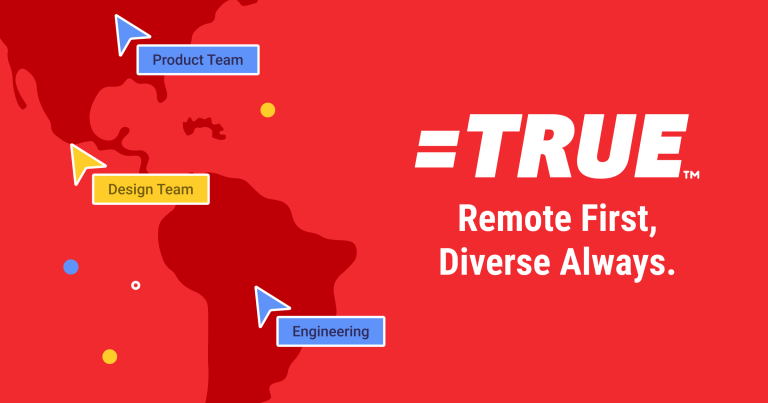As a business leader you can agree that the world keeps spinning even if you need to take a pause to plan how to boost profits, meet society’s expectations, and keep up with the latest tech trends.
Now picture this, you’re so busy learning about algorithms and gadgets that you lose focus of your most important asset: your people.
Just as the market evolves, the workforce demographics are shifting dramatically. Millenials making up almost half of all employees, have already reshaped many workplaces. Despite their increasing presence, many companies overlook their needs.
Today’s workforce doesn’t view jobs the same way as previous generations. It’s not just about earning money or climbing the corporate ladder—it’s about something deeper, aligning work with personal values, expressing individuality, and pursuing meaningful goals.
So, it’s clear that companies must offer more than just “paying the bills”. But what exactly should
companies provide? What are the key factors to consider when recruiting and keeping top talent? Let’s talk about that.
6 key elements your workforce is looking for.
1. Remote work
Remote work has become a hot topic since the pandemic hit. Some couldn’t wait for it to end and go back to their offices, while others found themselves meeting their best versions at home.
But let’s face it, remote work isn’t a pandemic trend. It’s now a major perk people are hunting for and offering it may be a good talent acquisition strategy.
Remote employment is not just helping people save time and money on commuting, it offers more freedom and the work-life balance we’ll discuss later in this article.
And let’s not forget the bottom line: going remote can mean big savings for businesses on office rent and expenses, which can then be reinvested into the team or the product.
Last but not least, while offering remote work you’re opening the door to finding the talent from all over the world. For example, if your company is based in Germany and is still stuck in offering just in-person positions, you could be missing that Danish talent that could be a game-changer for your business.
By having remote-work options, you are able to hire the best employees for your team, not just the closest.
2. Mental health
Newer generations are more tuned in to their mental health. By growing up in a digital world where social media and non-stop connectivity can pile on the pressure, it’s easy to get caught up in comparisons and feeling overwhelmed with uncertainty about the future, whether it’s finding a stable job or just making ends meet.
Younger folks are more clued in about the importance of mental health in their professional lives. They’re not afraid to speak up when they’re struggling and companies recognize the impact at the end of the day.
Depression is recognized as a leading cause of disability by the World Health Organization, and its economic impact on productivity is substantial. Combined with anxiety it’s costing the global economy around $1 trillion a year in lost productivity.
Anxiety disorders and stress contribute to decreased productivity, increased turnover rates, and a surge in burnout cases: Asana, studied over 10,000 knowledge workers across seven countries, and found approximately 70% of people experienced burnout in the last year.
Thankfully, some companies are implementing solutions like offering more time off, providing accessible mental health resources or training managers to facilitate crucial conversations. Investing in your employees’ well-being isn’t just a noble gesture—it’s a strategic move that can greatly impact their job satisfaction and productivity.
3. Work-life balance
Unlike previous generations, contemporary workers insist on having the autonomy to manage their personal lives alongside their careers—a demand that companies cannot afford to ignore.
For the younger generation, careers are just one aspect of their multifaceted identities. They have diverse interests, aspirations, and responsibilities outside of the workplace.
Businesses that prioritize work-life balance benefit from employee satisfaction and productivity. Even small adjustments, such as allowing employees to leave two hours earlier on Fridays or offering remote work options, can have a profound impact. For instance, implementing a “no meeting Friday” policy can enhance productivity and morale for employees and customers alike.
4. Empathy
In recent years, there’s been a powerful shift in marketing strategies, placing a spotlight on the customer experience. Cultivating trust and meaningful connections with clients is now recognized as essential for fostering brand loyalty and securing future business.
However, this principle extends beyond external relationships to our internal customers: our employees.
CEOs and HR experts need to grasp the crucial importance of investing in our internal customers – our employees. Happy employees not only stick around longer but also become passionate advocates for your business, pouring their hearts into driving your company’s success.
We often hear the sentiment that “people don’t quit jobs; they quit managers.” It’s not about cozying up to your boss over drinks every Friday. Modern workers value empathetic leadership, understanding that positive workplace environments foster personal and professional growth.
When facing challenges or mistakes, employees need empathy and support from their leaders, not just criticism. It’s crucial for companies to recognize individual behaviors and personalities, leveraging strengths to retain talent effectively.
5. Diversity and inclusive values
In today’s landscape, there’s a widespread recognition that everyone deserves equal opportunities, regardless of gender, sexual orientation, race, religion, age, and other factors.
Many companies now incorporate statements of commitment to diversity and inclusion, reflecting the growing awareness of these issues. But the difference between saying and actually achieving diversity and inclusion depends on whether you are truly investing in this commitment.
Hiring individuals based on their ability to contribute positively to the organization’s goals is critical to success. Qualifications such as gender or religion should play no role in this process. Companies that inadvertently perpetuate biases or prejudices in their hiring practices risk overlooking exceptional talent.
A diverse workforce brings together individuals with varied skills, backgrounds, cultures, and perspectives.
According to the Diversity and Inclusion Global Market Report, diverse companies earn 2.5 times higher cash flow per employee.
Companies that truly prioritize diversity and inclusion gain access to a broader talent pool, operate more efficiently, inspire their employees, and provide superior services—all while championing principles of justice and equality.
6. Career development
As professionals, we’re always looking for companies that have our backs and help us grow. Being stagnant in a low-level position with no room for advancement is no longer acceptable. Employees want clear career paths and to know what’s next. Companies need to step up by offering opportunities for growth and rewarding top performers. This is not only crucial for retaining talent but also for motivating employees to excel and develop new skills.
If our team doesn’t see opportunities to move up or any extra rewards like bonuses, they’re probably not going to put in their best effort. After all, why would someone strive for excellence when the reward remains unchanged?
Companies and managers need to keep this in mind if they want to motivate their employees and help them grow professionally.
The path forward: Investing in our most valuable asset.
With employee expectations always on the rise and the constant pressure to keep up with the competition, there’s no correct answer to the challenges of managing the modern workforce.
Recognizing that every investment in employee development is also an investment in the business’s success is crucial. By fostering a culture that prioritizes employee well-being and growth, companies can forge a path toward a brighter, more prosperous future.
Copyright © 2024 EQUALS TRUE. All Rights Reserved.





